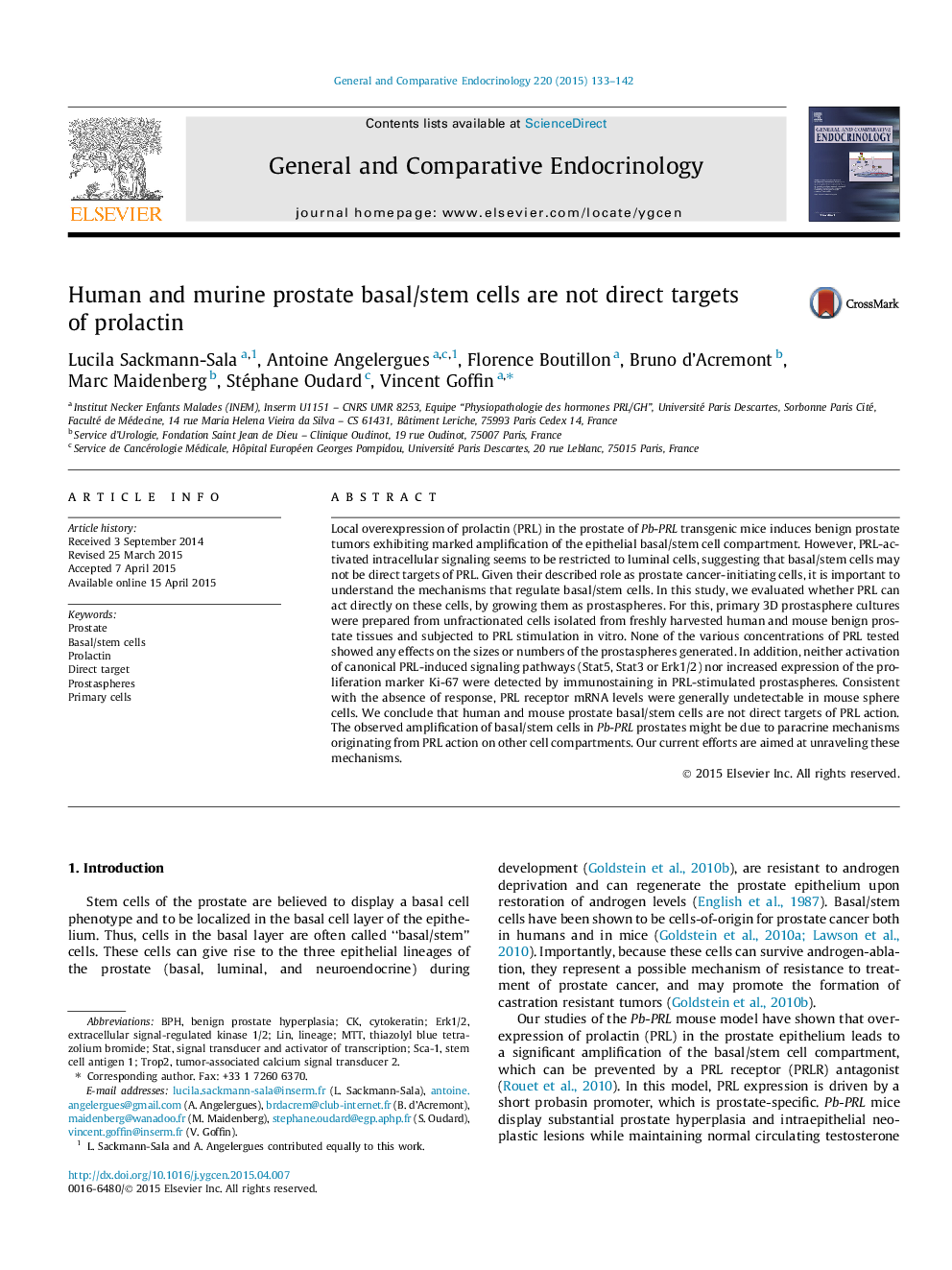| Article ID | Journal | Published Year | Pages | File Type |
|---|---|---|---|---|
| 2799951 | General and Comparative Endocrinology | 2015 | 10 Pages |
•Prolactin induces amplification of basal/stem cells in the mouse prostate.•We cultured basal/stem cells harvested from fresh mouse and human prostate tissues.•Prolactin failed to trigger any biological response (signaling, self-renewal, etc.).•We conclude that prostate basal/stem cells are not direct targets of prolactin.
Local overexpression of prolactin (PRL) in the prostate of Pb-PRL transgenic mice induces benign prostate tumors exhibiting marked amplification of the epithelial basal/stem cell compartment. However, PRL-activated intracellular signaling seems to be restricted to luminal cells, suggesting that basal/stem cells may not be direct targets of PRL. Given their described role as prostate cancer-initiating cells, it is important to understand the mechanisms that regulate basal/stem cells. In this study, we evaluated whether PRL can act directly on these cells, by growing them as prostaspheres. For this, primary 3D prostasphere cultures were prepared from unfractionated cells isolated from freshly harvested human and mouse benign prostate tissues and subjected to PRL stimulation in vitro. None of the various concentrations of PRL tested showed any effects on the sizes or numbers of the prostaspheres generated. In addition, neither activation of canonical PRL-induced signaling pathways (Stat5, Stat3 or Erk1/2) nor increased expression of the proliferation marker Ki-67 were detected by immunostaining in PRL-stimulated prostaspheres. Consistent with the absence of response, PRL receptor mRNA levels were generally undetectable in mouse sphere cells. We conclude that human and mouse prostate basal/stem cells are not direct targets of PRL action. The observed amplification of basal/stem cells in Pb-PRL prostates might be due to paracrine mechanisms originating from PRL action on other cell compartments. Our current efforts are aimed at unraveling these mechanisms.
